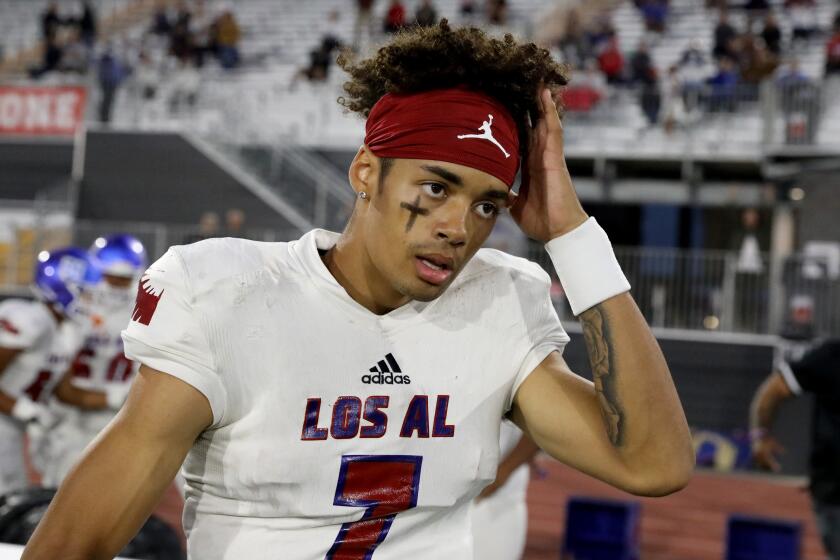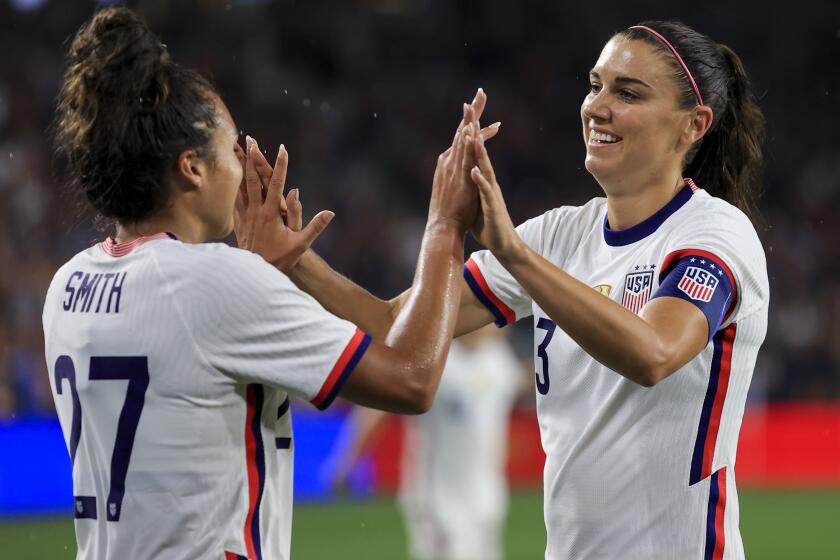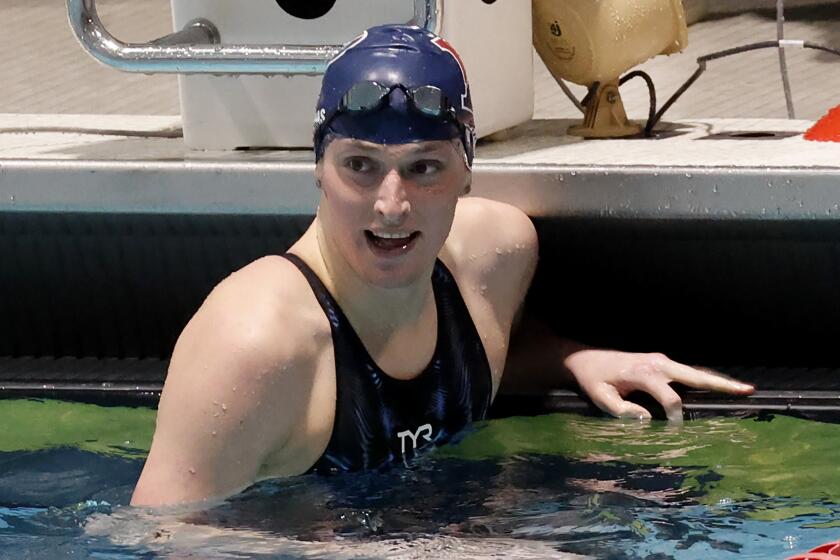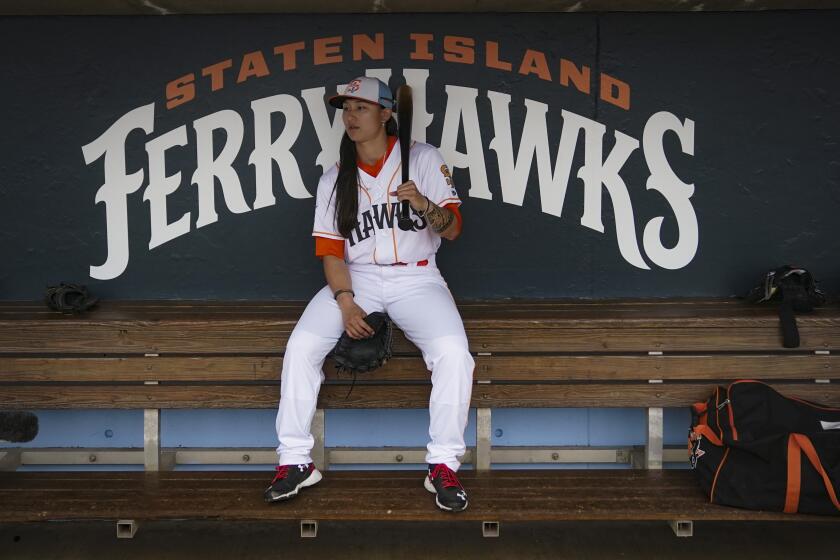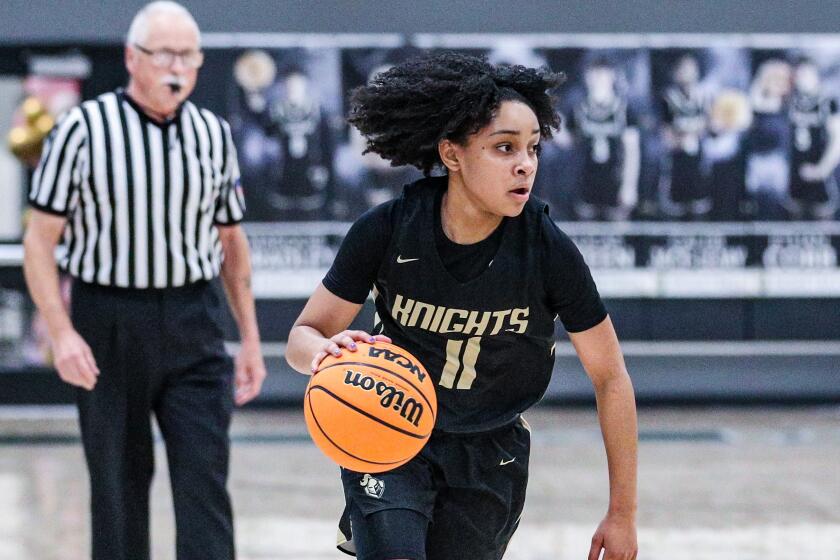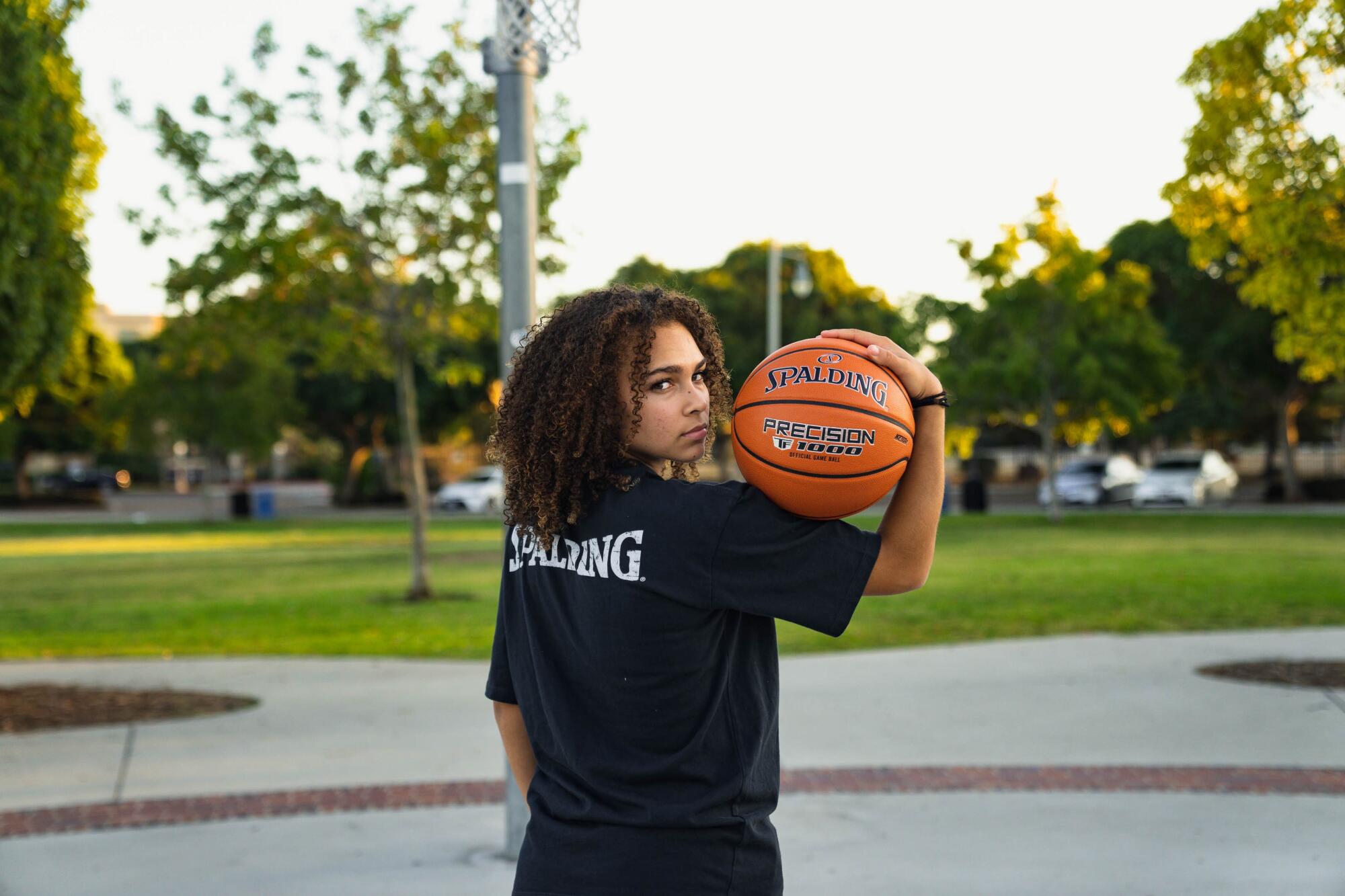
An 8-year-old girl grasps the chain on a playground swing.
“If you let me play,” she begins.
During the rest of Nike’s ad that first aired in 1995, young girls play on a merry-go-round, sit on a swing and throw a softball while a list of statistics show the physical and emotional advantages of playing sports.
“If you let me play … I will have more self-confidence. …. I will be 60% less likely to get breast cancer. … I will suffer less depression.
“I will learn what it means to be strong if you let me play,” the girls say.
Now, “if you let me play” has turned into “if you let me get paid.”
USC commit Malachi Nelson struck his first NIL deal with The h.wood Group, a major hospitality and restaurant company.
Fifty years after Title IX required schools receiving federal funding to grant girls and women equal access to play sports, the opportunity for female athletes to profit off their name, image and likeness at the high school and college level is sparking another potentially revolutionary leap forward.
Beyond physical and societal benefits of simply playing sports, female athletes are wading through the uncharted NIL waters. They’re building social media empires. They’re gaining financial stability that could set them up into their professional athletic careers and beyond.
“It gives us a backbone,” said 17-year-old UCLA commit Jada Williams.
Get used to Jada Williams.
The 5-foot-8 guard is a two-time U.S. junior national team member and committed to UCLA in March 2021. The 20th-ranked player in her class according to ESPN, Williams was one of the first high school athletes to sign an NIL deal when she did so last year. She appeared in a Spalding commercial alongside NBA star Damian Lillard last year, is an ambassador for Lillard’s Move Insoles, and is sponsored by athletic apparel company Gymshark.
Although Williams’ combined following on Instagram and TikTok is still fewer than 1 million, her engagement — a key metric for companies evaluating sponsorship potential — dwarfs Connecticut star Paige Bueckers, who was the first college athlete signed with Gatorade. From Jan. 1 to June 1, Bueckers averaged 104,225 likes per Instagram post, roughly a 10.4% engagement rate with her 1 million followers. Williams, with about 622,000 followers, has an 18.5% engagement rate.
Williams didn’t set out to build a brand on social media. She and her trainer were just posting basketball videos. Then she started showing off her sneaker-loving fashion sense, her friends and her faith.
Women in sports often use social media to work around limited traditional media exposure, forge strong bonds with fans and earn endorsement money.
When conversations about allowing college athletes to benefit from NIL deals began, Williams was confident it would trickle down to high school athletes. With a growing social media brand, she felt ready.
The opportunities became so lucrative that when the Kansas City, Mo., native realized Missouri did not allow high school athletes to profit from NIL deals, she considered simply not playing high school basketball at all before going to UCLA. She and her family, which includes her older sister and mother, realized the immediate benefits of playing in high school didn’t outweigh what could be generation-defining money, if handled correctly.
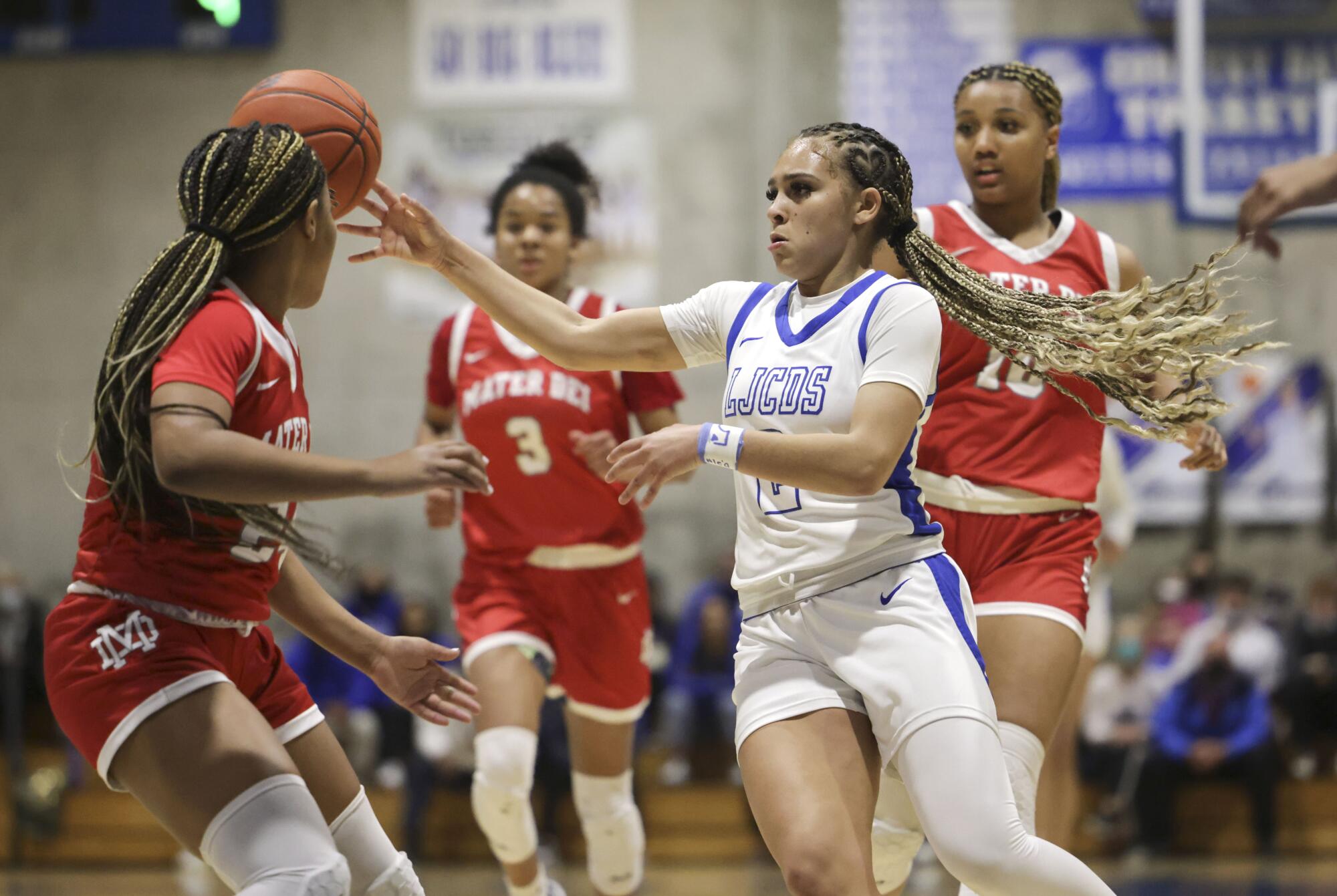
California is one of 10 states that allows high school athletes to sign NIL agreements. Williams’ family moved to San Diego and she transferred to La Jolla Country Day School, allowing her to keep playing and make the most financially out of her growing influence.
“The future is really, really important,” said Williams, who keeps all her NIL money in a savings account run by her mom. “I think what everyone’s doing right now is going to set them up for later. A lot of people are like, ‘Oh, I’m going to do this when I get to college,’ but it starts now.”
Top female athletes are thriving in the NIL space after critics once suggested women’s sports would never get any attention on the open market.
During the first year of relaxed NIL rules, women’s college basketball players appeared in national commercials for Gatorade, TikTok and Champion. Female gymnasts can make thousands off a single Instagram post sent to their hundreds of thousands of followers. Instead of men’s basketball players who were coming off a Final Four appearance or the highly touted football players on the same campus, it was UCLA women’s soccer player Reilyn Turner who earned Nike’s first NIL deal with a college athlete.
As many celebrate the Title IX 50th anniversary, transgender athlete rights are the next frontier proving immensely difficult to sort out.
But still, 73.5% of NIL compensation among Division I athletes goes to men, according to Opendorse, a company that helps advise athletes on endorsements and their potential market value.
Behind many of the biggest deals are collectives. The groups of boosters have pooled their money to provide NIL opportunities for athletes at a particular school and have fueled multimillion-dollar deals, primarily for star football players.
The NCAA is still sorting out how to handle the deep-pocketed donors. “Pay for play” and recruiting through NIL funds is prohibited under NCAA guidelines, but the governing body of college athletics has done little to enforce rules that can vary between states.
Athletes with large social media followings have brands lighting up their inboxes with deal opportunities. It didn’t come as easily for former USC beach volleyball player Julia Scoles.
In addition to studying for her master’s and competing for USC’s second consecutive NCAA title, the grad transfer was trying to capitalize on NIL opportunities during her final year of college eligibility. Her relatively 10,600 followers on Instagram wasn’t earning many automatic bids from companies, so she took matters into her own thumbs by messaging brands she already supported.
Now an ambassador for Free People’s new activewear line with other sponsorships from Suja Juice and supplement company Tennant Products, Scoles has a “good launch pad into my professional career.”
The two-time NCAA champion hopes to carve out a professional career on the AVP tour and go to the Olympics. But the path to becoming the sport’s next Kerri Walsh Jennings is expensive.
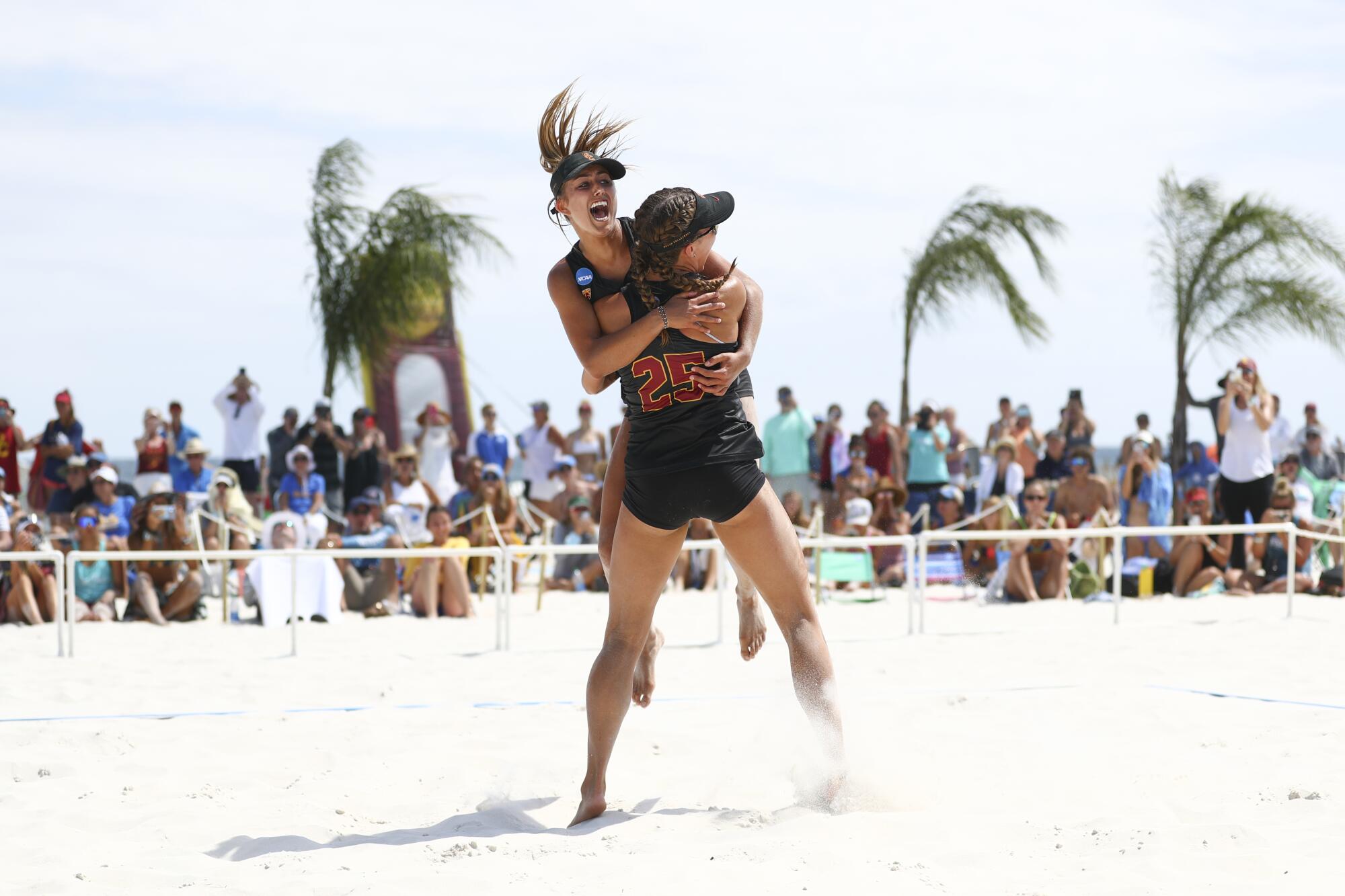
Professional beach volleyball players pay for their own training, coaching and travel. Prize money can only go so far. Sponsorships are the financial lifeline for many pros. Scoles’ deals can help her get ready for a handful of tournaments.
For athletes with relatively modest social media followings, NIL opportunities require them to flex their business savvy. They have to reach out to companies, pitch themselves and build their personal brands, all tools that can serve them as professional athletes or outside of sports.
“As a corporate recruiter, I’m looking at this saying these are real life skills that I want,” said Steve Simmons, co-founder of NIL Partners, a company that provides NIL education to athletes, athletic departments and corporate sponsors. “Maybe they’re not going to get paid per se while they’re in college, they may be able to balance the pay gap coming out afterwards.”
Scoles’ partner at USC, Hailey Harward, started by identifying brands she already used. She reached out to Raising Canes for a one-time deal at last year’s Manhattan Beach Open. A longtime lover of Aquahydrate’s bottled water, the two-time NCAA champion reached out to the brand for sponsorship. She got regular shipments of water and was featured on the brand’s Instagram page.
Harward was intentional about whom to work with. If she wasn’t already advocating for the brands privately, she wouldn’t do so publicly. With a master’s in marketing, she understood authenticity was a key part of any partnership.
“I don’t want to be a walking billboard,” Harward said.
Natalie Chou has two poses. The former UCLA guard can spin a basketball on her finger, and she can put her hand on her hip with a stern expression. She never thought that would be enough to turn her into a swimsuit model.
Chou, who graduated last year after averaging 8.8 points and 3.3 rebounds during her three-year UCLA career, scored prominent NIL deals with Champion and Forever 21. The latter was a partnership with Sports Illustrated to promote a new swimsuit line intended to empower women to feel comfortable in their bodies. It followed her first deal with Champion, for which she appeared alongside fellow UCLA stars Maya Brady and Norah Flatley in a campaign with a tagline aimed at female athletes to “be your own champion.”
The causes of female empowerment and body positivity were crucial for Chou, who took pride in being a rare female Asian American athlete in college basketball and advocated against anti-Asian hate during the pandemic. Chou is determined to use her NIL opportunities for more than just a quick paycheck.
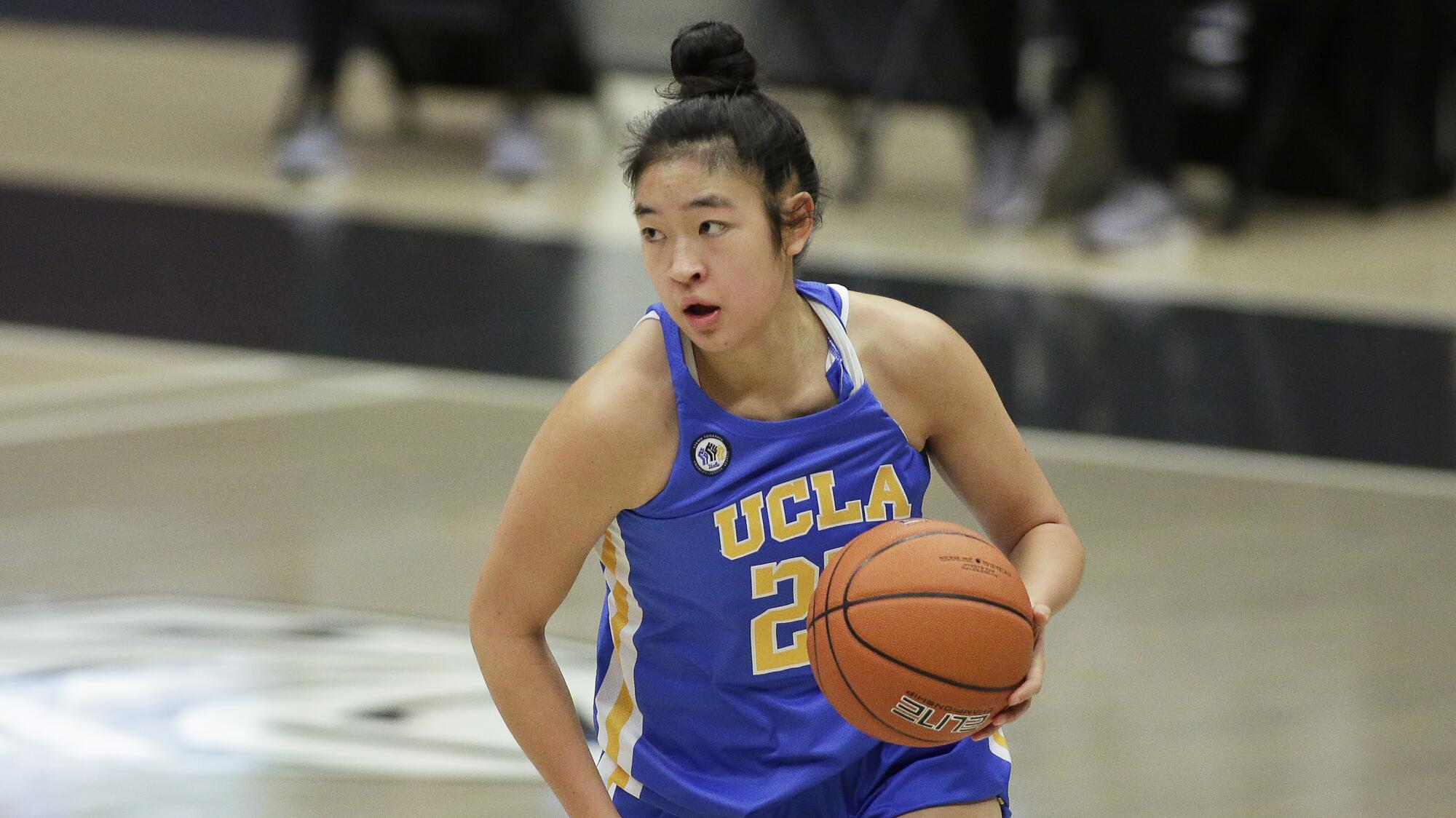
“I always say my mission is just to be that representation on the court,” Chou said, “but now I’m really happy that I can be it off the court too in a different way.”
NIL has allowed younger athletes to follow the rich history of women in sports advocating for social causes and setting the foundation for the next generation.
Williams is beginning to use her deal with Spalding to organize mission trips with the equipment sponsor providing balls, hoops and Bibles. She’s no longer just a teenager with an idea, she said. Eventually, she hopes to be the leader of a nonprofit called “Greater Purpose” aimed at helping young people find their purpose in life.
More women are playing baseball at higher levels than ever before, but they still face challenges earning Major League Baseball roster spots.
The 17-year-old has already found hers, and it’s not just on the court.
“I just want to be somebody that people remember,” she said. “I want to be remembered for making somebody smile or making somebody believe in their dream.”
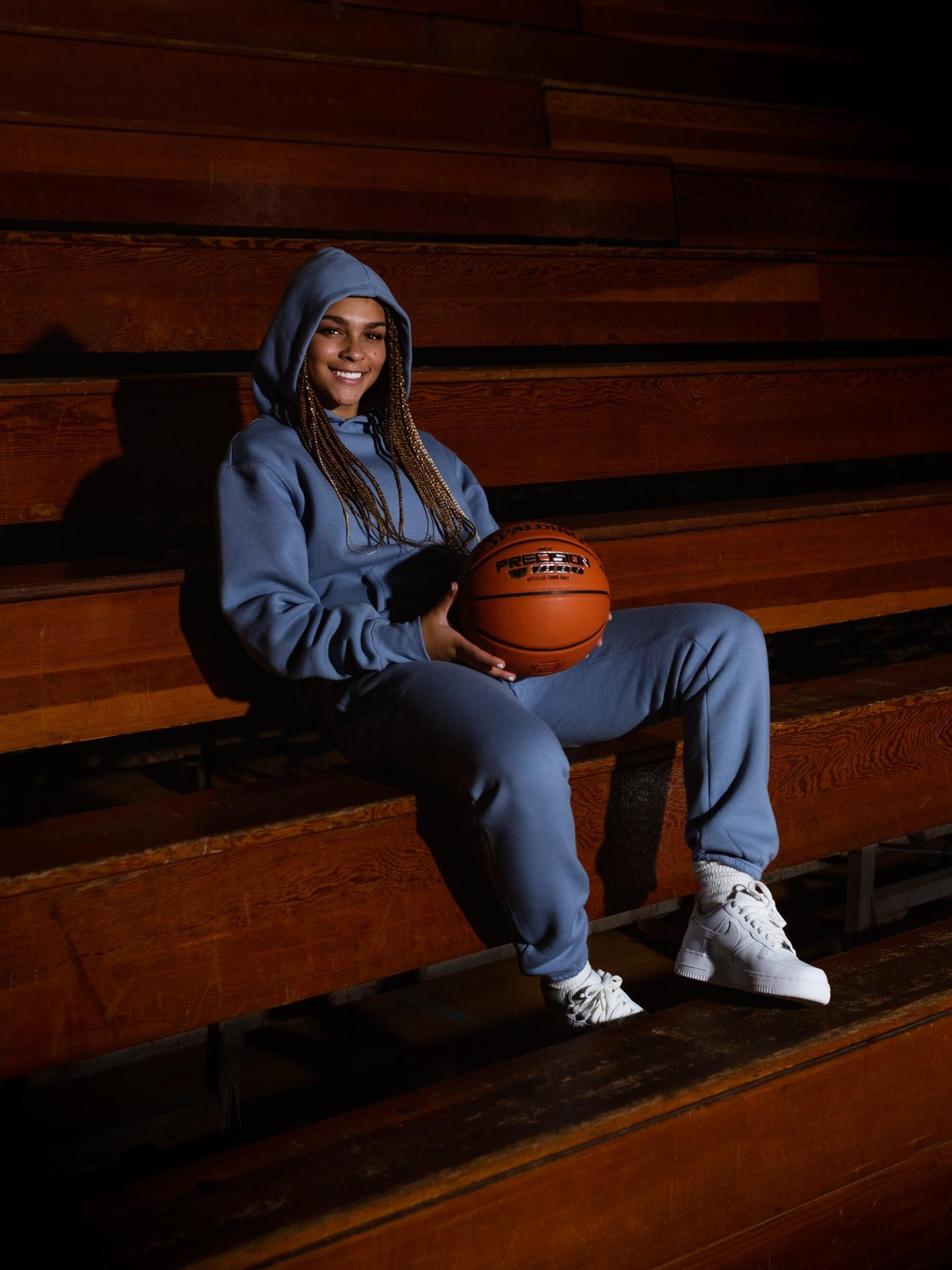
One of the first players to make Williams believe in her dream was Sue Bird. But with NIL opportunities allowing younger athletes to take on more prominent public roles, Williams said she’s also finding kinship with college stars. It makes Williams’ dreams seem more realistic and attainable when she sees what a 20-year-old like Bueckers has accomplished rather than chasing the achievements of a 42-year-old five-time Olympic gold medalist. For 12-year-olds who attend her games and wait for photos, Williams hopes to be a similar bridge between present and future.
Signing with Spalding last year was only Williams’ first step toward being the role model she’s always wanted to be. Being approached by the iconic equipment company “hit me like a truck,” Williams said. She cried. She didn’t have to wonder anymore what would happen if she was allowed to get paid.
“It’s real now.”

